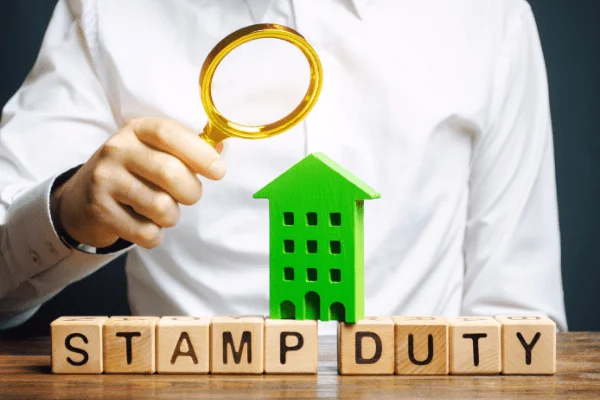Stamp Duty Savings Wiped Out by Skyrocketing Property Prices
The UK government’s temporary stamp duty holiday was supposed to boost buyer interest and motivate more first-time buyers to get on the property ladder. With potential savings of up to £15,000 available for those who took advantage of the scheme during its run,
New figures from MIAC Property Analytics suggest that across all areas of the country, these potential savings were completely wiped out by skyrocketing house prices. In real terms, buyers were still paying significantly more for homes than would have been the case a year ago, even when factoring in the maximum £15,000 saving.
House prices in the Northwest increased rapidly between June last year and April 2021, which is up approximately 3.68% despite an average £1,849 stamp duty saving. It was a similar picture in Yorkshire and the Humber, where average houses were up around 3.26% in April this year.
Home buyers in Westminster saw the biggest average property price increase anywhere in the UK. Comparing June 2020 to April 2021, average property prices were up an astonishing £138,316, even with the stamp duty savings factored in.
The average price of a terraced home in Westminster now stands at just under £4 million.
Outside London, the biggest average property price increase was recorded in Newport, Wales, and was approximately £60,000, including the £15,000 stamp duty discount.
An unintended consequence of stamp duty savings
The goal of the stamp duty incentive was to invigorate the housing market at a difficult time. Having succeeded in doing just that, it also had a major impact on property prices as demand skyrocketed in almost all regions of the UK.
“The stamp duty holiday was an initiative designed to reboot a property market that had effectively stagnated as the pandemic and lockdown measures delayed completions and made house viewings virtually impossible,” commented Darrel Welch, managing director at MIAC Analytics.
“One of the unintended consequences of the stamp duty holiday has been a gold rush to complete before the respective deadlines, with the unprecedented demand pushing up prices in return.”
“What this data shows is that a significant amount of the stamp duty savings made over the last year has simply been added to the cost of the sale, in some cases adding tens of thousands of pounds to a mortgage.”
“This data provides a snapshot of the holiday’s impact in real-time, but it will be at least six to twelve months down the line until we can understand the true impact. If house prices snap back to pre-pandemic trends, then thousands of people could be at risk of oversized mortgages and negative equity.”
Online Rental Scams on the up as Virtual Viewings become the Norm
Scammers advertising other people’s homes for rent online are subsequently cheating victims out of fraudulent deposits and rental fees. This is the warning of numerous estate agents in the UK who have noticed a surge in the number of fraudulent listings appearing online.
The scam is being fuelled by the growing popularity of virtual viewings, which have become the norm for prospective tenants across the country. People are signing contracts and paying deposits without ever visiting the respective property in person.
Consequently, fake advertisements for rental properties are appearing online that are convincingly copied from reputable websites. Typically listed on online marketplaces like Gumtree, the listings appear to be genuine and are practically indistinguishable from the real thing.
Prospective tenants are taken through the process in the normal way, exchanging messages with the letting agent and viewing the property online. But when the deposit and other arrangement fees have been paid, the letting agent and listing disappear.
Some of those who were victims of the con only discovered that they had been scammed on the day they attempted to move into the property. At this point, they found that the property was either already occupied or was being advertised for sale or rent by a different agent.
Estate agents have warned that the problem is becoming more widespread all the time and have urged local and national authorities to take action.
How to avoid falling victim to online rental scams
In the meantime, experts are advising prospective tenants to be on the lookout for signs of online rental scams. The listings published by fraudsters can be surprisingly convincing, though they can be distinguished from real listings upon careful inspection.
These are the most important warning signs to be on the lookout for when browsing rental listings online:
- Free listings on sites like Gumtree should always be scrutinised and approached with caution. While there are many legitimate listings on sites like these, they are also where most fraudulent listings appear.
- Where there are multiple listings for the same property: Often with slight discrepancies from one to the next, this is a red flag of fraudulent activity.
- A clear lack of professionalism in a listing is also indicative of a potential scam. Poorly worded ads with typos and bad grammar would not be published by a professional lettings agent.
- Impossibly low prices for premium properties in desirable areas are another common warning sign. Where a listing for a property seems too good to be true, it almost certainly is.
- A reputable lettings agent will never ask for any kind of upfront payment before the property has been viewed. Where money is requested up front, always decline.
- Pushy landlords and those who are reluctant to arrange in-person viewings of a property should also be avoided at all costs, irrespective of how convincing they may be.
Thankfully, the vast majority of online rental property listings are genuine, even on free ad sites like Gumtree. Nevertheless, it is important to know how to draw distinctions between a legitimate listing and an attempt to defraud you out of your money.
Dreams of Home Ownership Fading Fast for Younger Generations
The plight of young people with fading dreams of one day owning their own properties was recently laid bare in a BBC expose; the average UK property price has once again reached a new all-time high, and an entire generation is waking up to the fact that homeownership may be completely out of the question.
What is particularly striking is the way in which the issue is by no means confined to certain affluent areas of the country. The BBC makes it clear just how difficult and unaffordable things are becoming for would-be buyers all over the country.
Record property price growth in Wales
The BBC spoke to a 29-year-old classroom assistant and freelance writer from Gwynedd, who said that her region had been absolutely swamped by movers and buyers over the course of the pandemic.
“I’m just burying my head in the sand and praying the market might crash,” she said, in reference to Wales seeing the highest year-on-year average house price growth in the UK: an astonishing 11% since the same time last year.
“Even when Wales was closed [in lockdown] and we were staying home, it was still being flooded with tourists who didn’t respect the rules.”
“You can feel like where you live is just a playground. I’m hearing about houses being bought unseen and the prices in North Wales rising more than anywhere else in the UK.”
She went on to discuss the growing impossibility of purchasing even a modest home anywhere in the region due to the disparity between average wages and current property prices.
“I’ve got a friend who grew up in Abersoch, and there’s no way he could afford to live there now,” she told the BBC.
“It’s full of these incredible millionaires’ houses that are empty for most of the year. It’s really frustrating when people say, ‘You just need to work harder’. The average income in that area is not that high; you could work your arse off for years and never be able to afford a property.”
Where she lives, the average gross weekly income stands at around £479, which equates to an approximate annual salary of slightly less than £25,000. This isn’t nearly enough to pass even the initial stress tests of a major bank or lender.
Struggles in the Southwest
The BBC also spoke to 30-year-old Tamsyn Kelly from Cornwall:
“My plan was to make money in the city and go home and live in Cornwall eventually,” she explains.
“A few years ago, that seemed possible, but now there’s no way I could afford a property at home. If I went home, I’d have to register for a housing association property.”
“It doesn’t make any sense for my brother to try and get rental accommodation.”
“In Penzance, [homeowners] think, ‘Why rent it out when I could Airbnb?’ I think it’s becoming harder and harder for young people to stay in Cornwall; most of my friends there are still living with their parents, and we’re nearly 30. People aren’t able to get on with their lives and meet normal adult milestones.”
Somerset resident Sam Fawcett, 28, likewise stated that his chances of purchasing a property were practically non-existent even before the COVID-19 crisis began.
“Three new average-sized housing estates have gone up in the last five years, and another large one is just starting construction,” he told the BBC.
“But it doesn’t seem to have lowered house prices at all. In fact, my parents’ neighbours have just sold their house for £100,000 more than when they bought it four years ago.”
“The main thing I’ve noticed is how few properties are on the market at the moment.”
“There were periods over the last year when there were no properties at all to rent in the town or even a few miles into the surrounding area. Now there are six, but only three are within our price range. I know some of this must be because of COVID-19, but even in 2019, it was much harder than we thought it would be to find somewhere.”
Crypto Withdraw Feature Coming to PayPal, Company Confirms
PayPal has confirmed that its customers will soon be able to transfer cryptocurrency from their accounts to external wallets for the first time. Currently, it is only possible for customers with crypto coins in their accounts to either hold onto them or spend them.
CoinDesk, Head of Blockchain Services for PayPal, Jose Fernandez da Ponte, confirmed that the service will be introduced at Consensus 2021, a conference organised and hosted by CoinDesk.
“We want to make it as open as possible, and we want to give choice to our consumers,” Jose confirmed for those in attendance.
“Same as we let them pay any way they want to pay, we want them to bring their crypto to us, so they use it in commerce, and we want them to take the crypto they acquire with us and take it to the destination of their choice.”
When quizzed as to the likelihood of PayPal introducing its stable coin sometime in the near future, Mr. da Ponte stated that it is “way too early” for this kind of move to be made. He also commented on expectations with regard to the rollout of central bank digital currencies, stating that “it absolutely makes sense that central banks will issue their own tokens.”
A long-awaited service expansion
PayPal officially entered the cryptocurrency game as recently as March this year, when it was confirmed that the company would begin letting customers in the US use crypto coins for payments.
Shortly after, PayPal announced that it would allow its customers to connect their accounts with their Coinbase-operated digital wallets, facilitated by the Venmo payment app.
“Crypto on Venmo is a new way for the Venmo community to start exploring the world of crypto within the Venmo environment they trust and rely on as a key component of their everyday financial lives,” commented Senior Vice President of PayPal and General Manager of Venmo, Darrell Esch.
“No matter where you are in your cryptocurrency journey, crypto on Venmo will help our community learn and explore cryptocurrencies on a trusted platform and directly in the app they know and love.”
“Our goal is to provide our customers with an easy-to-use platform that simplifies the process of buying and selling cryptocurrencies and demystifies some common questions and misconceptions that consumers may have.”
To Buy or Not to Buy! Property Experts Discuss Whether Buyers Should Buy Now or Wait Until 2022
This month, property prices rose once again, by £2,509, resulting in the average price of a home in the UK rising to an all-time high of £336,073. With the price increases and the end of the stamp duty tax break, many buyers are asking whether this is the time to buy or if it would be more prudent to wait until 2022.
The property market has been somewhat chaotic over the past few months, mostly due to the pandemic and the stamp duty holiday. However, there are early indications that the market is starting to slow down and normalise. The monthly house price index report by Rightmove showed a 0.8% rise in June, down from a much higher 1.8% increase seen in May. April showed an even bigger leap of 2.1%, according to the report.
Rocketing prices were attributed to the increased demand for properties during the stamp duty holiday as well as the extremely low-interest rates on offer. With the tax break coming to an end, demand has significantly decreased, and property prices are expected to stabilise.
On July 1st, the stamp duty threshold will change to £250,000, and from October 1st, it will return to £125,000.
Ask the experts
Experts give their professional opinion on whether now is the right time to buy or if it is better to hold off for now.
Moneyfacts’s finance expert, Rachel Springall, commented that the impact on first-time buyers and people looking to remortgage will be different. Remortgagers will find they have more equity than they had before, while first-time buyers will need to save larger deposits due to increased house prices.
She also explained how new homeowners may find themselves in negative equity if prices were to drop in the near future.
She explained: “If first-time buyers have a 5% deposit to get their foot onto the property ladder, then they will find deals returning to the market after a notable absence.
“However, whether it is the right time for them to commit must be considered carefully because house prices could fall and leave borrowers in negative equity.
“Borrowers who have a limited deposit or equity may wish to spend more time building a larger pot and wait a little longer before they commit to a mortgage.”
Rachel also advised that a larger deposit attracts lower interest rates when it comes to getting a mortgage. A two-year fixed-rate mortgage with a 10% deposit works out at 0.53% lower than the same mortgage with a 5% deposit.
She said, “Clearly, stretching to just 5% more could entail some substantial savings on mortgage repayments by moving down the next loan-to-value bracket.”
She added that she would advise caution when it came to considering sub-1% mortgages and to ensure to check all fees and any additional costs before committing. She left off by saying that it is really down to individual circumstances whether now is the time to buy or not.
Hargreaves Lansdown’s personal finance analyst, Sarah Coles, stated that she felt that house price drops in the short term were “not the end of the world” if you expect to live in the property over the long term. However, she advised buyers to be aware of bidding wars and to not pay more than they wanted to, in which case it may be better to wait.
Sarah added, “Likewise, it might make sense if you haven’t saved enough of a deposit to make the mortgage affordable or if you’re concerned about the immediate outlook for your job.
“But there similarly might be very good reasons to get on with it, especially if you’re living somewhere that’s making you or your family unhappy.”
Historic Global Tax Agreement Reached by G7 Finance Ministers
On June 5, G7 finance ministers reached a historic global tax reform agreement, fulfilling the promise of Chancellor Rishi Sunak to ensure the world’s biggest international businesses make an appropriate contribution.
Key details of the agreement reached at the G7 summit
- G7 Finance Ministers strike a seismic agreement on global tax reform that will mean the largest multinational tech giants will pay their fair share of tax in the countries in which they operate.
- Following two days of talks chaired by Chancellor Rishi Sunak in London, counterparts agreed to reforms that would see multinationals pay tax in the countries where they do business.
- As part of the landmark deal, finance ministers also agreed to the principle of a global minimum rate that ensures multinationals pay a tax of at least 15% in each country they operate in.
- Nations also agree to follow the UK’s lead in making climate reporting mandatory and agree on measures to crack down on the proceeds of environmental crimes.
Source: Gov. uk
At the culmination of several years of discussions, finance ministers from the G7 nations reached an agreement that will see major international companies face fair tax obligations in the countries in which they do business. It was also agreed that multinationals should pay a global minimum tax rate of at least 15% in every country they operate in.
Speaking after the event, Chancellor Rishi Sunak commented on the significance of the landmark agreement and its positive impact on the UK economy.
“These seismic tax reforms are something the UK has been pushing for and a huge prize for the British taxpayer, creating a fairer tax system fit for the 21st century,” he said.
“This is a truly historic agreement, and I’m proud the G7 has shown collective leadership at this crucial time in our global economic recovery.”
Further, focus on environmental issues
It was also agreed at the meeting that G7 leaders should follow in the footsteps of the UK by demonstrating genuine commitment to the integration of climate change prevention and biodiversity preservation in all aspects of financial and economic decision-making.
Since the creation of the Task Force on Climate-Related Financial Disclosures (TCFD) six years ago, the United Kingdom has played a major role in ushering G7 nations in a more proactive direction where major climate issues are concerned. Specifically, the UK has encouraged and inspired the G7 to make climate disclosures mandatory across their respective economies.
Support for vulnerable countries
G7 ministers also pledged to offer additional support to poor and vulnerable countries worldwide, furthering the group’s milestone backing of the $650 billion general allocation of Special Drawing Rights (SDRs) earlier this year.
Further details on the agreements reached and the meeting can be found on the official Gov. uk website, while images of the historic summit have been published on HM Treasury’s official Flickr page.
Paragon Bank Predicts Buy-to-Let Boom, Reports Impressive Half-Year Profits
The UK could be headed towards another major buy-to-let boom as wealthy investors and entrepreneurs seek to take advantage of skyrocketing property prices. According to Paragon Bank, new and established buy-to-let investors alike are looking to snap up desirable homes ahead of a seemingly inevitable spike in demand for private rental properties.
As rapidly rising property prices continue to price families and first-time buyers entirely out of the market, millions are being forced to seek indefinite private rentals. Subsequently, Paragon Bank has reportedly set aside £927 million in loans for buy-to-let investors and entrepreneurs.
“There are a lot more families renting property than there ever were in the past,” commented chief executive Nigel Terrington, acknowledging how difficult it is becoming for UK residents to get on the property ladder.
“There is a bit of a culture in the UK that says our job in life is to grow up, get married, and buy a house. That is changing. We don’t have to buy a car or a phone; we can lease them. Housing is the same.”
Paragon also reported impressive half-year profit growth of 45% to hit £83 million, making the bank’s shares the biggest riser on the FTSE 250.
“I am incredibly proud of these results. They reflect the hard work of our people during a challenging period as well as the success of our long-standing strategy to build a technology-enabled specialist banking group,” added Terrington.
“We have delivered record half-year profits and go into the second half of 2021 with strong momentum, healthy new business pipelines, and enhanced margins.”
“Our people continue to excel, maintaining both productivity and flexibility as we look to develop options for the future operating model of the group. We look forward to the second half with strong capital ratios, prudent liquidity, and growing confidence as the UK emerges from the COVID-19 crisis.”
Record-High Mortgage Lending Activity Recorded in Q1
Mortgage lending activity attributed to home movers reached an all-time high during the first three months of this year as homeowners across the UK set their sights on more spacious homes with private gardens.
According to the latest figures published by the Financial Conduct Authority (FCA), movers accounted for 42% of total mortgage lending activity during Q1 2021. This is an enormous leap from the 27% recorded during the same period last year and the highest since records began in 2007.
Meanwhile, data from Halifax indicates another significant spike in average house prices, potentially pricing many first-time buyers out of the market. The average market value for a UK home increased by more than £22,000 over the past year, reaching a new all-time high of £261,743 during May, according to Halifax.
Consequently, the share of loans issued to first-time buyers during that time increased by just 2% compared to the same period in 2020.
Shifting property purchase intent
Figures published by Zoopla indicate a major shift in property purchase intent among UK movers and buyers, which is not being matched by supply. This is resulting in significant increases in average house prices in key regions across the country, making it difficult for first-time buyers to find homes within their budgets.
Over the past four years, the number of 3- and 4-bedroom family homes available on the UK market has declined significantly each year. Meanwhile, smaller flats with 1 to 3 bedrooms are currently on the market than at any point since 2017, as buyers set their sights on spacious homes away from busy urban centres.
The market is also being fuelled by the impending deadline of the government’s temporary stamp duty holiday. Even then, many economists and lenders believe that the momentum the real estate sector has built over recent months will carry it through until the end of the summer, at least.
Even in the face of major economic uncertainty in the wake of the pandemic, official figures indicate the fastest average UK house price growth in more than a decade.
Strong performance throughout Q1
According to the figures published by the Financial Conduct Authority, total mortgage lending activity for Q1 this year was around 26.5% higher than the first three months of the year in 2020. A total of £83 billion was borrowed by the UK public in the form of mortgage products across all classifications.
Remortgaging activity fell significantly during the same period, having plummeted 14% compared to the same time last year. This is the worst performance for this section of the market since 2007.
Meanwhile, the share occupied by buy-to-let property owners remained relatively stable, while first-time buyer mortgage activity increased only slightly compared to last year.








